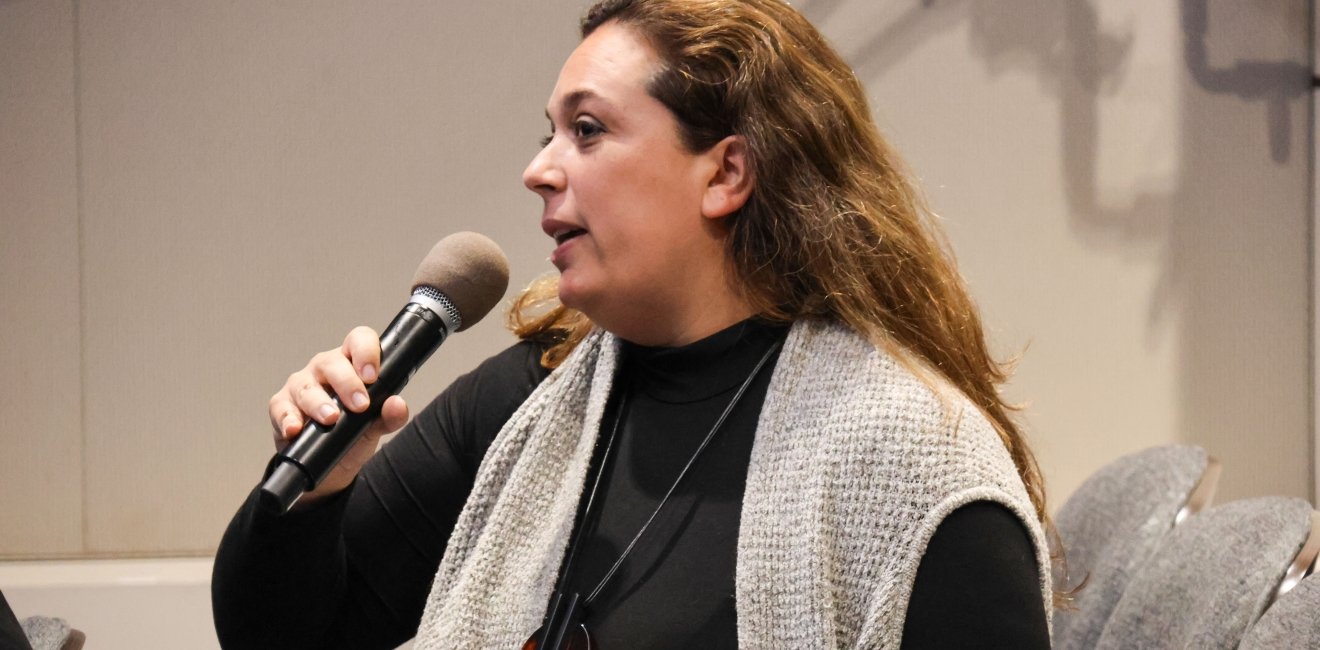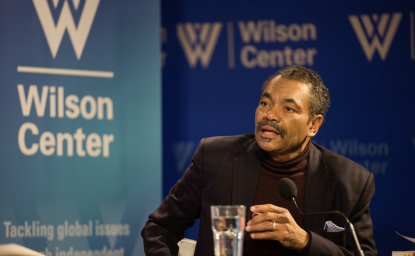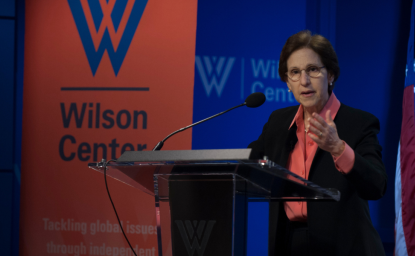
A blog of the Wilson Center

Dr. Giannini is a scholar practitioner dedicated to influencing public policy through her research on gender, environmentalism, and conflict. She holds a master’s degree from San Tiago Dantas International Relations Program in Sao Paulo, Brazil, and her PhD in International Studies from Old Dominion University in Norfolk, USA.
Born in Rio de Janeiro to a single mother, Giannini moved to the Brazilian countryside at the age of four. Now, as a single mother herself to two four-year-old twin boys, Dr. Giannini moved her own young family to Washington DC to work on her book The Guardians of the Amazon: Women Defenders’ Role in Mitigating Climate Change as a Woodrow Wilson Center Scholar in Residence. Initially focusing on normative protection frameworks and organized crime, her research has shifted to explore the environmental impact of women defenders, particularly in climate change adaptation and mitigation.
Dr. Giannini’s research spans many countries, including Haiti, the Democratic Republic of Congo, Colombia, and Peru, but is especially tied to Brazil. “I love the Amazon so much. Since I was a little girl, I liked to think of that sea of trees,” she reflects, “and every time I go there and I talk to these women, I find new things.”
In Yanomami land, for example, women were the first to notice mercury poisoning that had infected infants through breastmilk. In other cases, Amazonian women noticed the cosmetic industry’s exploitative extraction methods and partnered with a company to sustainably extract nut oils themselves, mitigating environmental damage. When the environment is compromised, women are disproportionately affected and often the first to notice and adapt.
Upon interviewing many such women, however, Giannini found that most did not self-identify as environmental defenders. To them, their work is simply an existential necessity. Expanding to women in Colombia and Peru, Giannini encountered the same phenomenon. “Women who defend the environment take a while to realize what they’re doing and the importance of what they’re doing. Because of that, not only are they unable to access resources, but they don’t have an active voice and don’t access the protections to which they should be entitled.
Spikes in organized crime in the cities and environmental crime in the forests affect local people much like traditional state conflict would, but don’t trigger the same protections under international humanitarian law. Giannini strives to change this and ensure that women defenders have a voice in protecting their land and accessing protections from violence.
Before joining the Wilson Center, Dr. Giannini worked for 11 years as a program manager and senior researcher at the Igarapé Institute. There, she designed Evidence on Violence and Alternatives to women and girls (EVA), the largest public database dedicated to violence against women. As a mother to two boys, Dr. Giannini affectionately refers to EVA as “my daughter.” Her research revealed that three in every five women defenders have suffered non-lethal violence, a fact often obscured by reports focusing on murders alone. This critically affects women in Brazil since access to protection programs for defenders requires evidence of death threats, neglecting other forms of violence more commonly faced by women.
Giannini’s research interests weren’t always focused on gender. Her academic journey began with language studies and teaching in English and Spanish. Her interest in national security was sparked by her father's murder during her childhood. However, when the only three women in a Haitian battalion she interviewed pleaded for help because they were sexually assaulted by their own counterparts, Giannini knew she wanted to refocus on gender in conflict.
At the Wilson Center, Giannini embraced the opportunity to prioritize her research more than she could during past consultancies. Meanwhile, the diverse and collaborative environment has prompted her to consider new directions such as how Chinese companies influence Amazonian food production.
While at the Wilson Center, Giannini was awarded a grant to further her research in Brazil, but is also eager to continue working in DC. Her next move is still undecided, but she does hope to complete her book eventually. The challenge is finding a way to conclude when the scope of women environmental defenders’ roles is ever-expanding. Dr. Giannini’s hope is that, by systematizing their experiences and presenting them as protagonists, she will make these women’s voices more visible and thus better resourced going forward.
Explore More in Scholar & Alumni Spotlight
Browse Scholar & Alumni Spotlight
Olufemi Vaughan: Shaping Governance Through Scholarship and Dialogue

Dr. Maurice Jackson: The Sounds of Resistance Throughout History

